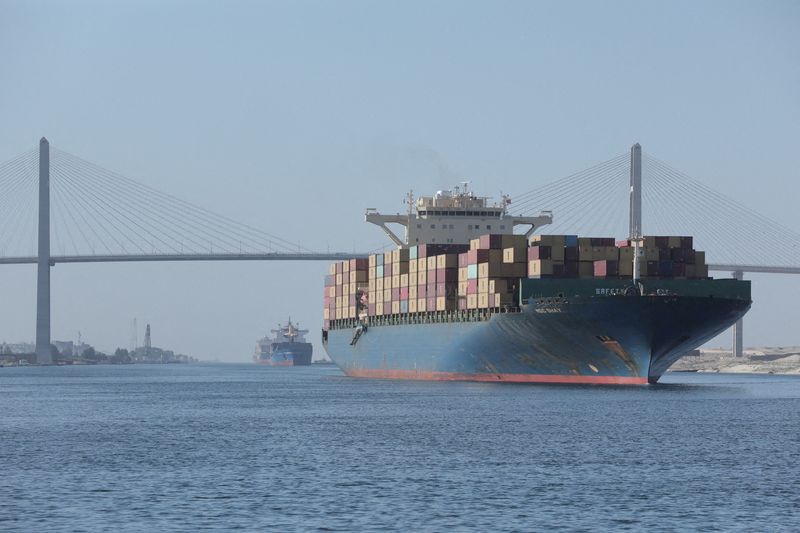By Jeslyn Lerh, Wendell Roelf and Robert Harvey
SINGAPORE/CAPE TOWN/LONDON (Reuters) - The re-routing of a growing number of ships around Africa to avoid potential attacks in the Red Sea is altering refueling patterns and boosting demand for bunker fuel at far-flung ports, from the Mauritius to South Africa to the Canary Islands.
Ships are also expected to top up more at Singapore and Rotterdam, the two busiest bunkering ports and where fuel is competitively priced, as they try to hedge against uncertainty over route changes, traders and analysts said.
Attacks by Yemen's Houthi militia on merchant ships in the Red Sea and retaliatory U.S. strikes have ratcheted-up tensions in the Middle East as the Gaza war rages on.
The attacks by the Iran-allied Houthis, which they say are in support of Palestinians, target a route that accounts for about 15% of the world's shipping traffic and acts as a vital conduit between Europe and Asia.
Hundreds of large vessels have rerouted around the southern tip of Africa, adding 10-14 days of travel, to avoid drone and missile attacks by the Houthis.
"Ships are diverting away from the Red Sea and re-routing around the coast of South and West Africa – this increased traffic has created huge congestion in bunkering ports around Africa and placed significant pressure on port infrastructure," John A. Bassadone, founder and CEO of independent bunker supplier Peninsula, told Reuters.
Bunker fuel demand has risen at ports including Mauritius' Port Louis, Gibraltar and ports in the Canary Islands and South Africa, said traders and industry sources, with sales jumping in Cape Town and Durban.
Prices of low-sulphur bunker fuel delivered at Cape Town have jumped 15% to almost $800 per metric ton since mid-November when the attacks started, data from bunker supplier Integr8 Fuels showed.
"We have seen an increase in bunker demand and fixtures in South Africa, particularly for bunker-only vessels lately," said Philip Wang Balke, a senior bunker trader for Africa at Integr8, adding that supply is tightening as more shipowners and operators buy fuel in advance to ensure sufficient supplies.
TANKERS AND BULKERS
Container ships were first to divert away from the Red Sea, and now oil tankers and dry bulk carriers are following suit, diverting bunker demand to West Mediterranean ports at the expense of East Mediterranean, industry sources said.
"We are anticipating increased demand in Las Palmas and Western Mediterranean ports as it's likely the African ports will exceed capacity," Peninsula's Bassadone added.
Singapore and Rotterdam have yet to see a demand surge, though buying is poised to pick up in the next few weeks as ships lift more fuel at competitive prices, traders said.

"If the vessels are prone to higher ton-mileage or uncertainties, they are likely to fill up their tanks in case they ended up at expensive ports, and they can save a bit by buying less due to the extras they bought in Singapore," said an Asia-based bunkering manager.
Spot premiums for prompt low-sulphur bunker fuel delivered at Singapore rose to $25 to $30 a metric ton above cargo quotes in mid-January, climbing from about $20 in early January, said industry sources.